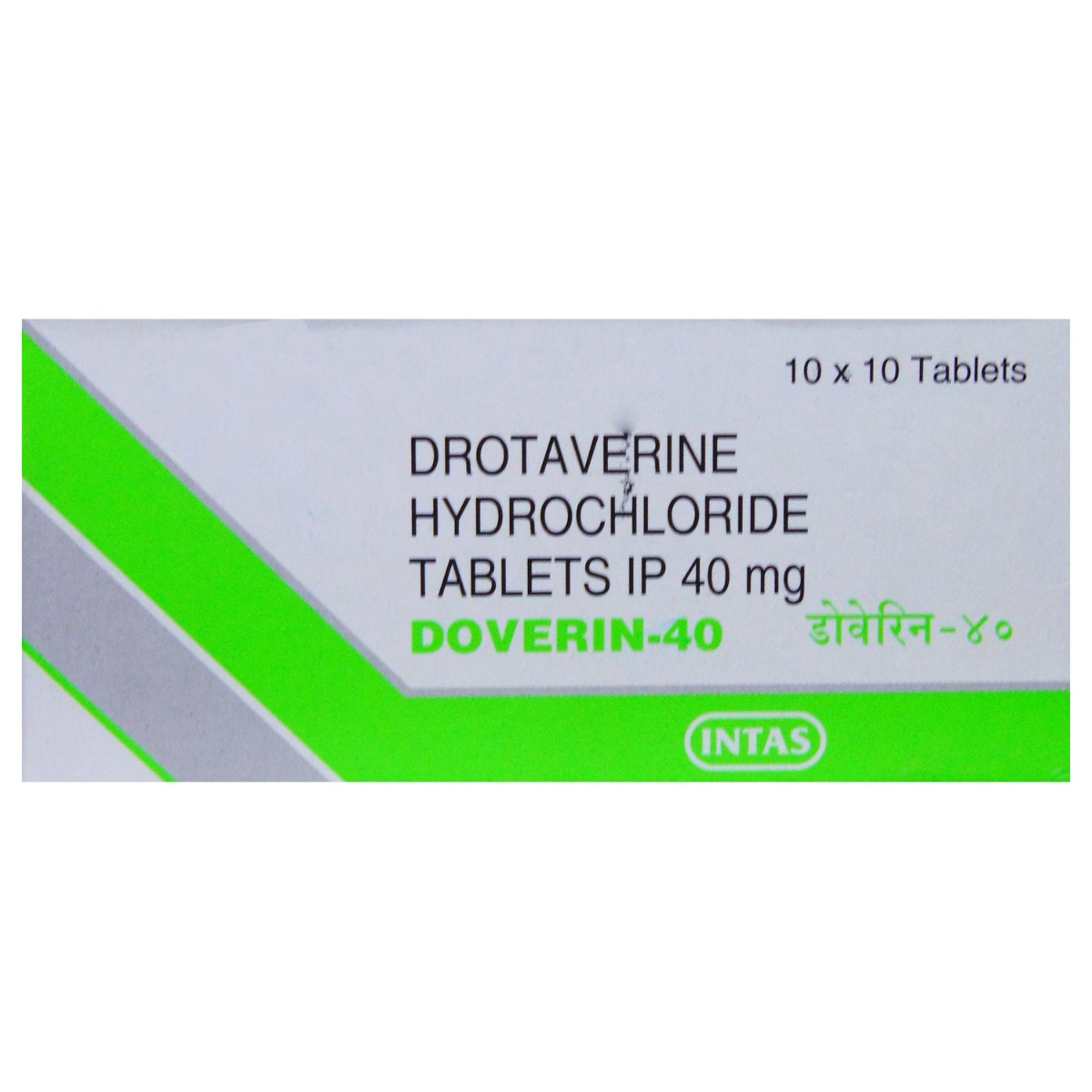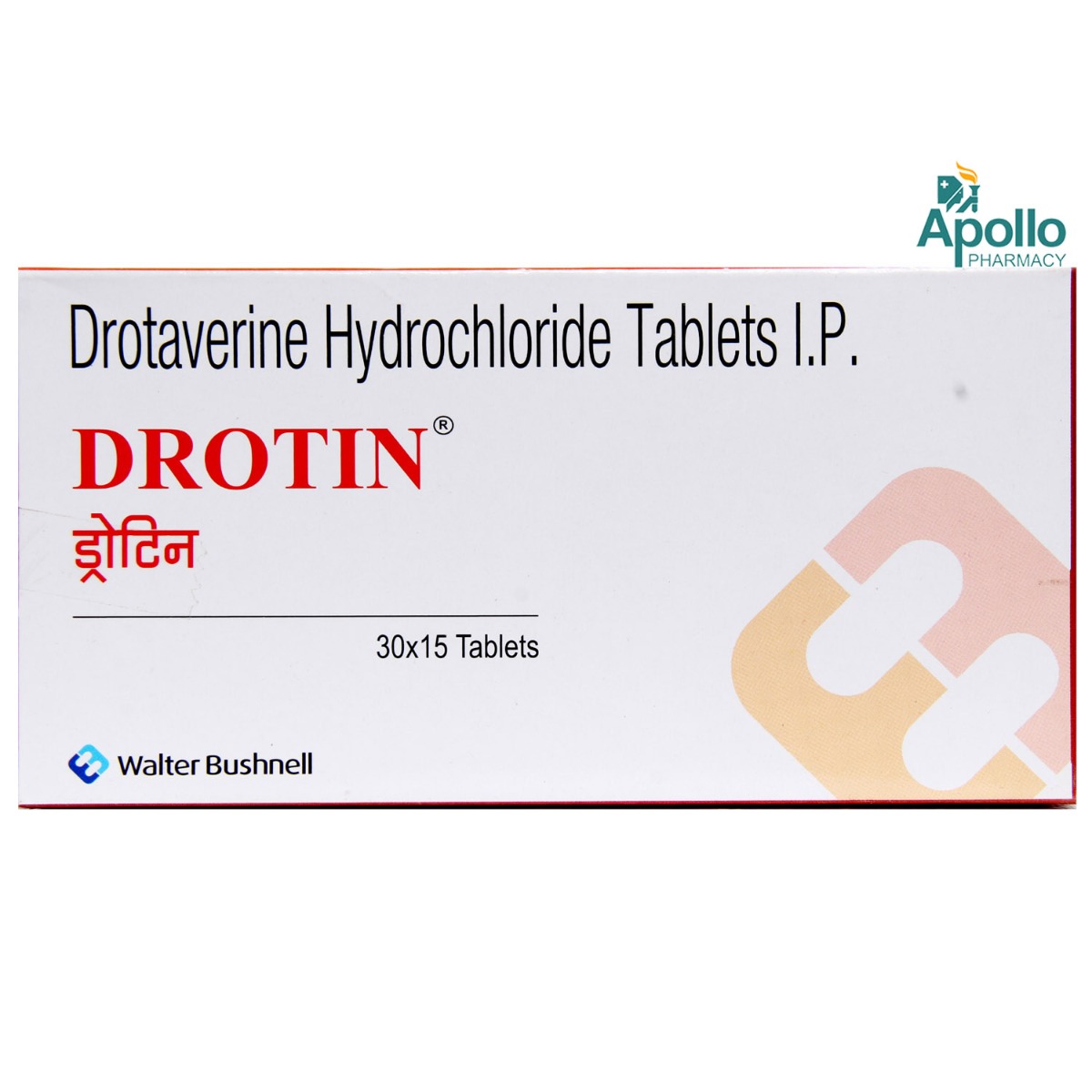Antispasmin 40mg Tablet

MRP ₹32.95
(Inclusive of all Taxes)
₹4.9 Cashback (15%)
know your delivery time
Provide Delivery Location
Composition :
Manufacturer/Marketer :
Consume Type :
Return Policy :

Secure Payment

Trusted by 8 Crore Indians

Genuine Products
Therapeutic Class
Country of origin
Manufacturer/Marketer address
Author Details
We provide you with authentic, trustworthy and relevant information
FAQs
Antispasmin 40mg Tablet works by relieving contractions associated with smooth muscles of the abdomen.
Antispasmin 40mg Tablet may cause low blood pressure and should be taken with caution if you have hypotension. Consult your doctor before taking Antispasmin 40mg Tablet if you have low blood pressure. Regular monitoring of blood pressure levels is advised while taking Antispasmin 40mg Tablet.
To treat your condition effectually, continue taking Antispasmin 40mg Tablet for as long as prescribed. Do not be reluctant to speak with your doctor if you feel any difficulty while taking Antispasmin 40mg Tablet.
Dry mouth could be a side-effect of Antispasmin 40mg Tablet. Limiting caffeine intake, avoiding smoking and mouthwashes containing alcohol, drinking water regularly, and chewing sugar-free gum/candy might stimulate saliva and prevent drying of the mouth.
Consult your doctor before taking Antispasmin 40mg Tablet along with levodopa as Antispasmin 40mg Tablet may reduce the effects of levodopa, leading to worsening of tremors and rigidity.
Vertigo might be a side-effect of Antispasmin 40mg Tablet. Consult your doctor if you experience spinning sensations or loss of balance.
Disclaimer
Alcohol
Safe if prescribed
Avoid consumption of alcohol while taking Antispasmin 40mg Tablet as it may cause increased dizziness.
Pregnancy
Consult your doctor
Please consult your doctor before taking Antispasmin 40mg Tablet if you are pregnant or planning for pregnancy.
Breast Feeding
Consult your doctor
It is not recommended to use Antispasmin 40mg Tablet while breastfeeding.
Driving
Safe if prescribed
Antispasmin 40mg Tablet may cause dizziness. Do not drive or operate machinery unless you are alert.
Liver
Consult your doctor
Please consult your doctor before taking Antispasmin 40mg Tablet if you have a liver impairment or any concerns regarding this.
Kidney
Consult your doctor
Please consult your doctor before taking Antispasmin 40mg Tablet if you have kidney impairment or any concerns regarding this.
Children
Safe if prescribed
Antispasmin 40mg Tablet can be given to children above 1year if prescribed by the doctor.
Product Substitutes
About Antispasmin 40mg Tablet
Antispasmin 40mg Tablet belongs to a group of medicines called anti-spasmodic agents used to reduce and relieve smooth muscle spasms in the gastrointestinal tract, urinary tract, and gall bladder.
Antispasmin 40mg Tablet contains 'Drotaverine', which works by relieving contractions associated with smooth muscles of the gastrointestinal tract, gall bladder, and urinary tract. Thereby helps in relieving pain.
In some cases, Antispasmin 40mg Tablet may cause side effects such as nausea, vomiting, dry mouth, and vertigo (spinning sensation). Most of these side effects do not require medical attention and resolve gradually over time. However, you are advised to talk to your doctor if you experience these side effects persistently.
Consult your doctor before taking Antispasmin 40mg Tablet if you are pregnant or planning for pregnancy. Do not take Antispasmin 40mg Tablet if you are breastfeeding. Antispasmin 40mg Tablet may cause dizziness, so drive only if you are alert. Avoid consuming alcohol with Antispasmin 40mg Tablet as it could lead to increased dizziness. Keep your doctor informed about your health condition and medicines to rule out any side-effects.
Uses of Antispasmin 40mg Tablet
Medicinal Benefits Mweb
Key Benefits
Antispasmin 40mg Tablet belongs to a group of medicines called anti-spasmodic agents. Antispasmin 40mg Tablet is used to treat smooth muscle spasms in the gastrointestinal tract, urinary tract, and gall bladder. Antispasmin 40mg Tablet works by relieving contractions associated with smooth muscles of the abdomen.
Directions for Use
Side Effects of Antispasmin 40mg Tablet
- Nausea
- Vomiting
- Dry mouth
- Vertigo (spinning sensation)
Drug Warnings
Do not take Antispasmin 40mg Tablet if you are allergic to any of its components. Inform your doctor if you have heart problems, liver or kidney problems. Talk to your doctor if you have low blood pressure or are taking levodopa. Consult your doctor before taking Antispasmin 40mg Tablet if you are pregnant or planning for pregnancy. Do not take Antispasmin 40mg Tablet if you are breastfeeding. Antispasmin 40mg Tablet may cause dizziness, so drive only if you are alert. Antispasmin 40mg Tablet should not be given to children below one year as the safety has not been established. Avoid consuming alcohol with Antispasmin 40mg Tablet as it could lead to increased dizziness.
Drug-Drug Interactions Checker List
- LEVODOPA
Habit Forming
Diet & Lifestyle Advise
- Exercising regularly helps in muscle stretching so that they are less likely to spasm, tear and sprain. Mild exercises such as jogging and walking are helpful for muscle stretching.
- Massages can also be helpful.
- Avoid freezing and hot temperatures.
- Avoid wearing tight-fitting clothes; instead, wear loose garments.
- Rest well, and get plenty of sleep.
- To avoid developing pressure sores, change your position every two hours.
- Hot or cold therapy can help treat muscle spasms. Apply an ice-pack or hot-pack on the muscle for 15-20minutes.
- Stay hydrated, drink plenty of water.
All Substitutes & Brand Comparisons
RX
Out of StockSamspas 40mg Tablet
Aamorb Pharmaceuticals Pvt Ltd
₹19.96
(₹1.8 per unit)
39% CHEAPERRX
Out of StockMefsym 40mg Tablet
Symbiosis Pharmaceuticals Pvt Ltd
₹28
(₹2.52 per unit)
15% CHEAPERRX
Out of StockColidrot 40mg Tablet
Agron Remedies Pvt Ltd
₹30
(₹2.7 per unit)
9% CHEAPER

Have a query?

_0.jpg?tr=q-85)





